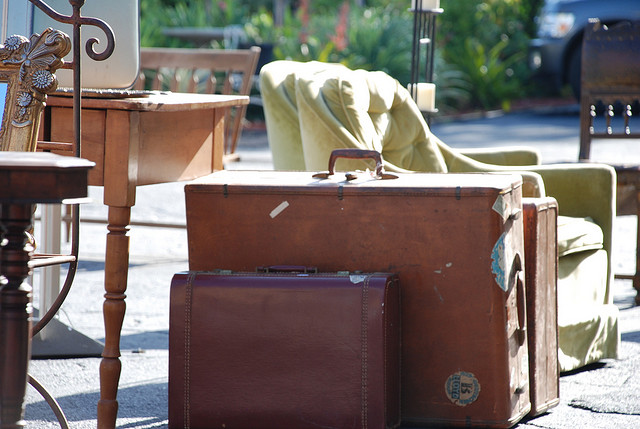Leaving your baggage behind you
Dan Sullivan, creator of the Entrepreneurial Time Management System, recently made a claim in one of his seminars that immigrants do better economically, and entrepreneurially, than their native counterparts. Having lived in multicultural societies my entire life, and being a migrant entrepreneur myself, this idea conformed with my assumptions.
It turns out that in the UK at least, statistics back this claim:
- The average earnings of many immigrants from outside Europe have overtaken those of people born in Britain. A British-born person in the UK living in a house with two or more adults but no children can expect a median disposable income of 25,647 ppp, while someone born abroad in a country outside the EU living in a similar home could expect to earn 26,267 ppp.
- Immigrants, on average, are less likely to be in social housing than people born in the UK, even when the immigrant is from a developing country. Only immigrants who became UK citizens are neither more nor less likely to be in social housing than UK-born people.
- While just 10.4 per cent of people born in the UK start a business here, 17.2 per cent of migrants in Britain have started their own company.They are also younger, with migrant entrepreneurs 44.3 years-old on average compared to 52.1 for those born in the UK.
Sullivan then provided a reason: Immigrants do better than their native counterparts because they (metaphorically and physically) leave their baggage behind.
This sounded interesting to me, but I haven’t yet found any research to suggest this is true. It does make for a good analogy though.
You can consider the concept of “leaving one’s baggage behind” metaphorically, to mean leaving the past behind, to make room for the future. Sullivan claims that people do better when they open themselves up to new challenges, whether out of necessity or choice.
Anecdotally, I can confirm that people with less experience in their roles tend to be more open to new ideas than those with more experience. I’ve attributed this to the idea that it’s easier to learn something new than it is to unlearn something old. Those who have the experience, need to not only learn the new thing, they also need to unlearn what they know, before they can learn what they do not. It’s as if they have to throw out the trash first, to make room for the new stuff.
Just imagine that: leaving everything behind and starting anew with only what you can feasibly carry or ship. It requires a significant amount of courage to do that, and perhaps that’s correlated with the courage required to take on new challenges of any kind?
Leaving, or throwing out, your stuff behind can be an anxious experience. For many of us, our stuff defines the parts of who we are. Our stuff reminds us of the memories of our former selves, which we might not yet be ready to let go of. My weakness is books. I can be a book hoarder, and I’m loathe to get rid of them. The very prospect of removing them gives me a vague sense of also removing the knowledge I’ve gleaned from them.
95% of the books I keep, however, have very little relevance to what I am seeking today. I don’t refer to them. I don’t learn anything new from them. These books simply take up space; space I could use for more books, ornament, or nothing at all, but space.
I’m lucky, however, that I don’t have the same attachment to ideas, or ways of doing things, techniques, or assumptions, that I might have with my books. If I did, I’d have shelves and shelves of old ideas blocking the new ones, and I’d not have been able to do even a small percentage of what I have, if that was the case.
